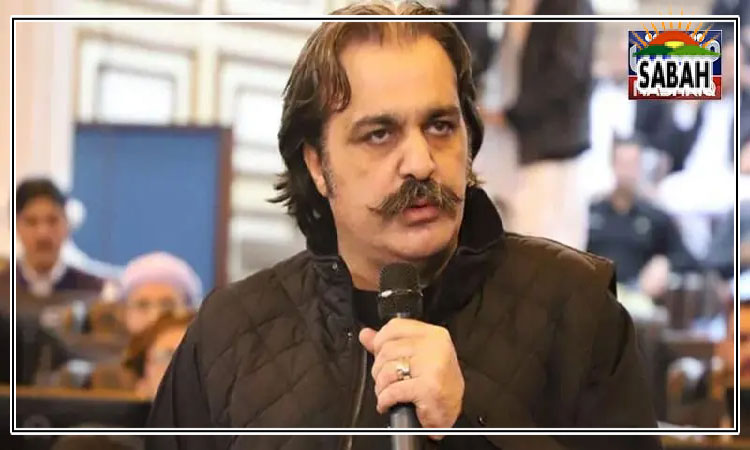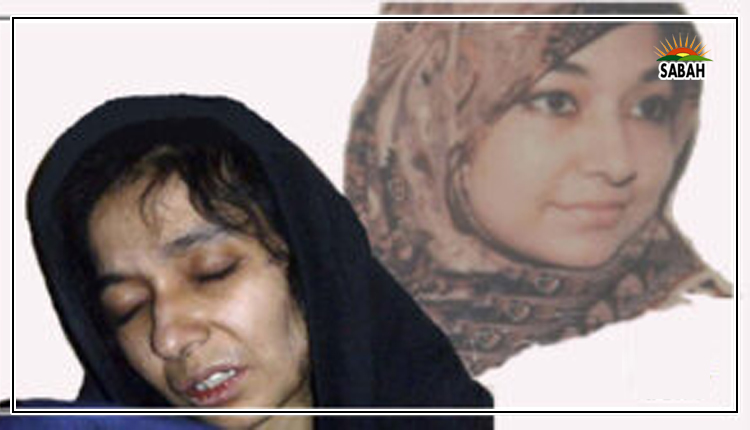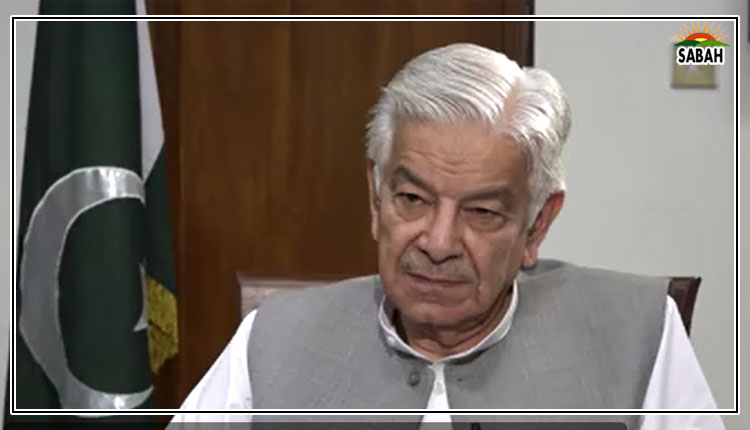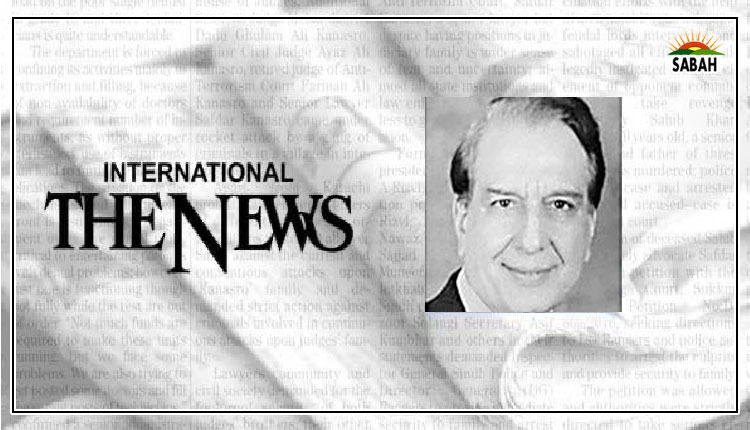Shah Latif: Sindh’s celebrated reformer…Syed Mohibullah Shah
The death anniversary (urs) of Shah Abdul Latif Bhittai, Sindhs most celebrated poet-reformer will be observed on Friday (September 1) in Bhit Shah (his resting place).
Regarding his poetry, Shah Latif once said, take my poetry seriously. These verses are not merely for singing but are milestones to guide you to achieve your cherished goals.
But, instead of celebrating his multidimensional genius his message of humanism, liberalism, interfaith harmony and strident opposition to totalitarianism and implementing his reform agenda for an enlightened society, we have reduced his poetry to a single-dimensional interpretation of a Sufi poet.
We have not yet realized what a great reformer he was. And in difficult times in the age of totalitarian regimes of the medieval Subcontinent when even human life had no meaning if you annoyed the kings and rajas his clarion call to dislodge such anti-people rulers was the first of its kind, a unique and unparalleled call in the Subcontinent of his time.
The ruthless nature of rule in the Subcontinent is aptly captured by this Urdu phrase: jaan kee amaan paaoon tau arz karoon (I will speak or explain my opinion only if you promise not to take away my life, in case my words do not please the lord/ ruler). This was the level of the suffocating serfdom under which people lived for years. The ruler was called Zille Ilahi, literally meaning the shadow of God on earth, who could commit no wrong irrespective of the heinous brutalities he committed against his people.
That in such an age and time, a clarion call for dislodging absolutist and anti-people rulers was given from medieval Sindh by our polymath poet-reformer is unique in itself. This is how he describes these rulers: Bahar boli hanj jee andar karo kaan, ahro thalli thaan bhajee chhon bhora kaje (These rulers are deceptive. On the outside they appear sweet-tongued and friendly but are crow-black (anti-people) from the inside. These are empty vessels (anti-people) and they should better be broken (overthrown/replaced)).
Such calls for radical reforms were heard from his contemporary European thinkers like John Locke, Rousseau, Montesquieu and others but not from within the medieval Subcontinent.
And there are reasons for this. Take another look at the Subcontinent of the 17th and 18th centuries and one would find that writers and poets did not raise their voice for improving peoples living conditions because most of them had attached themselves to the darbars of the kings and rajas and were living on their stipends. They showed no interest in what was happening to people under these brutal regimes and were busy entertaining rulers and singing their praises. They wrote shahnamas and badshahnamas (poems written in praise for kings) but no awaminama (a pro-people poem) to talk about the lives lived under those absolutist rulers.
So, how did this miracle of mind happen in medieval Sindh where its polymath poet, called for toppling them instead of singing praises of the rulers? There were four factors that influenced Shah Latif who talked about a reformist agenda of empowering people and creating an enlightened society similar to European philosophers but unheard of in the Subcontinent of his time.
The first was his family upbringing and the value system taught by his parents. His religious foundation and teaching regarding the importance of the ethical basis of society came from what he learnt from his parents.
The second factor that influenced his mind were the extensive travels he undertook as a young man with jogis (ascetics) and others all over Sindh and the neighboring regions of Balochistan, Rajasthan, Gujrat etc. Humanism, egalitarianism, Sufism and respect for people of all religions, castes and creeds and his compassion for the poor and the downtrodden reflected in his poetry were products of the life he lived among them.
The third factor that influenced his mind was the peasant revolt in the early 18th century in Jhok, 60 miles away from his home. Led by Shah Inayat Shaheed, the peasants asked for a better share of the produce from the land they worked on and put up strong resistance against feudal lords. Ultimately, the feudals sought help from Mughal Emperor Farrukhsiyar (the grandson of Aurengzeb) and used deceptive tactics and exploited religious feelings to crush it.
They sent a delegation to Shah Inayat Shaeed with the Holy Quran asking for negotiations for the amicable settlement of the issue. Respecting the Quran, he went along with them for negotiations. As soon as he reached their camp, he was arrested and executed and the revolt crushed. This incident shaped Shah Latifs thinking against exploitative, ruthless and deceptive rulers. His disdain for such rulers is reflected in his verses.
The fourth factor was the life he lived. All through his life he was a free man, unburdened by obligations to any ruler or raja. He was not a darbari poet, nor did he live on anybodys stipends or owe them anything to hide their cruelties and sing their praises. With his unburdened conscience and courage of convictions, he championed the causes of the marginalized sections of society, including religious and gender minorities.
Through his poetry, Shah Latif taught the following values: first, there should be an ethical basis of society, where people should share the value system by consent not by force; second, we must create a just society that eradicates poverty, oppression and injustice and provides wellbeing and dignity to all; three, there should be no discrimination on the basis of race, religion, caste or creed because a common humanity binds us together; four, the rulers must work for the wellbeing of people who should be empowered to hold the rulers accountable and replace them if they work against peoples interests.
If we look around, we will find that these are also the universal values upheld by the UN Charter and reflected in the constitutions of all democratic countries. So why have we neglected his reform agenda and empowerment of people?
It is a tragedy of the colonial mind that we applaud and embrace values that come from former colonial masters but disregard the same values that were advised by our people our polymaths. Shah Latifs poetry has also been a victim of this colonial mindset.
It should be clear that Shah Latif is a poet of the future, not of the past. He is a poet of enlightenment, not entertainment. He is a poet of everybody, not just Sindhi Muslims, and he is the first reformer of the Subcontinent.
Courtesy The News












